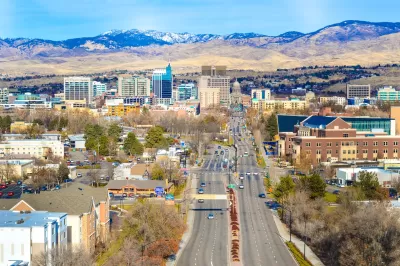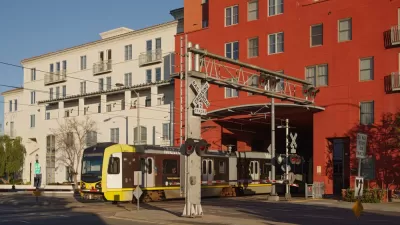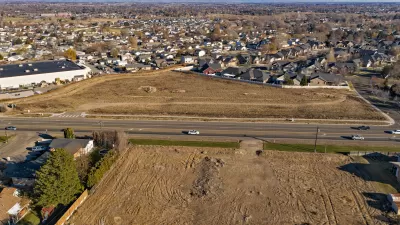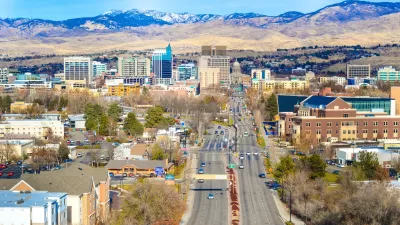The rapidly growing city is evaluating ways to increase housing production, reduce car dependency, and make Boise more walkable.

With housing costs soaring (in January, median rents were up by more than 20 percent from the previous year, rising faster than in any other American city), Boise is looking to revise its zoning code and guide denser development in the rapidly growing city, reports Joni Auden Land for the Idaho Statesman.
"Most council members agreed they wanted the new code to allow for a more urban environment, rather than what they characterized as suburban planning guidelines in the [draft] module," writes Land. Council members expressed a desire to see taller buildings, reduced parking requirements, legalized accessory dwelling units (ADUs) such as garage apartments, and mixed-use development. "One benefit of this denser planning, they said, could be to increase Boise’s housing supply, which lags far behind demand. Proponents say denser planning could allow for more units to be built and help fill the widening gap," according to the article. "Multiple council members said the draft did not go far enough to make Boise a more walkable city, where residents would not need a car to access businesses, schools and other services." Council Member Holli Woodings called for more mixed-use development that puts businesses closer to where people live.
According to an August 2021 city report, Boise needs more than 27,000 new housing units, 77 percent of which should be affordable, by 2030 to meet growing demand. Boise's population grew by 14 percent in the decade between 2010 and 2020.
FULL STORY: A denser, big-city feel: Council offers new vision for Boise’s future — and affordability

Planetizen Federal Action Tracker
A weekly monitor of how Trump’s orders and actions are impacting planners and planning in America.

Congressman Proposes Bill to Rename DC Metro “Trump Train”
The Make Autorail Great Again Act would withhold federal funding to the system until the Washington Metropolitan Area Transit Authority (WMATA), rebrands as the Washington Metropolitan Authority for Greater Access (WMAGA).

DARTSpace Platform Streamlines Dallas TOD Application Process
The Dallas transit agency hopes a shorter permitting timeline will boost transit-oriented development around rail stations.

Renters Now Outnumber Homeowners in Over 200 US Suburbs
High housing costs in city centers and the new-found flexibility offered by remote work are pushing more renters to suburban areas.

The Tiny, Adorable $7,000 Car Turning Japan Onto EVs
The single seat Mibot charges from a regular plug as quickly as an iPad, and is about half the price of an average EV.

Supreme Court Ruling in Pipeline Case Guts Federal Environmental Law
The decision limits the scope of a federal law that mandates extensive environmental impact reviews of energy, infrastructure, and transportation projects.
Urban Design for Planners 1: Software Tools
This six-course series explores essential urban design concepts using open source software and equips planners with the tools they need to participate fully in the urban design process.
Planning for Universal Design
Learn the tools for implementing Universal Design in planning regulations.
Municipality of Princeton
Roanoke Valley-Alleghany Regional Commission
City of Mt Shasta
City of Camden Redevelopment Agency
City of Astoria
Transportation Research & Education Center (TREC) at Portland State University
US High Speed Rail Association
City of Camden Redevelopment Agency
Municipality of Princeton (NJ)





























